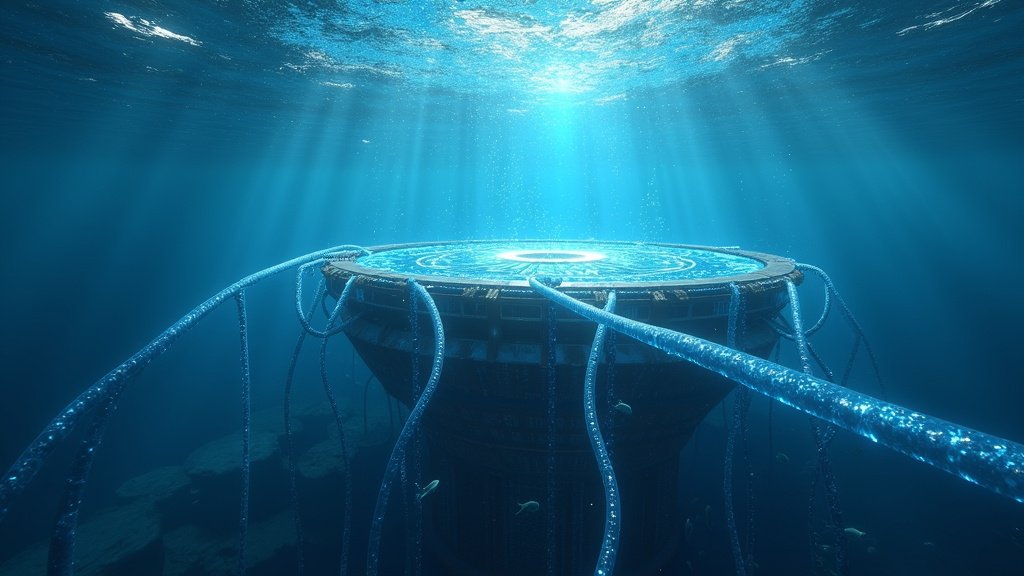Navigating the Murky Waters: Endur’s Mission to Streamline Ocean Innovation
In a world increasingly reliant on the health and productivity of its oceans, a burgeoning sector known as BlueTech promises solutions ranging from renewable energy to sustainable aquaculture and coastal resilience. Yet, the path to deploying these critical innovations is often choked by a labyrinthine system of permits and regulations. Enter Endur, a Palm Beach-based startup founded by Andrew Lama, which is endeavoring to cut through this bureaucratic “blue tape” and accelerate the pace of ocean-focused development. [1, 7]
Lama, a Stanford-educated bioengineer, observed firsthand the alarming decline of ocean ecosystems in his native South Florida. His pivot from biotech was driven by a realization: often, the bottleneck to environmental solutions wasn’t a lack of technology, but the formidable regulatory hurdles preventing their deployment. “It’s not always a technology issue,” Lama stated, “It’s a deployment issue. We have solutions, but they get stuck in regulatory processes.” [1, 7]
The Permitting Predicament: A Chokehold on Coastal Progress
The complexity of securing approvals for coastal and ocean projects is a well-documented impediment. Developers, innovators, and municipalities often find themselves grappling with a fragmented regulatory landscape that demands approvals from a multitude of federal, state, and local agencies. [2] This often leads to overlapping requirements, inconsistent timelines, and a high probability of delays, which can stretch from months to years, even for seemingly straightforward projects like seawall construction. [1, 7]
These delays are not merely administrative nuisances; they carry substantial consequences. Coastal projects, particularly in environmentally sensitive areas, are subject to rigorous environmental impact assessments and must adhere to strict regulations concerning protected species, habitat disruption, and water management. [2, 3, 5] Navigating these requirements demands extensive documentation, pre-construction surveys, and detailed mitigation plans, all of which add layers of complexity and cost. [2, 5]
Florida, for instance, faces unique challenges due to its robust waterfront development market. The need for deeper excavations for modern structures raises issues with sand management and disposal, often creating friction between state and local regulations. [4, 6] Furthermore, projects located in FEMA-designated flood zones must comply with stringent building elevation and precautionary standards, which require specialized technical expertise. [2]
The overall regulatory complexity and fragmentation breed uncertainty, which not only slows innovation but also deters capital. Investors are often wary of the inherent regulatory risk associated with BlueTech ventures, making it harder for promising solutions to secure the necessary funding to move from concept to deployment. [1, 7]
Endur’s Digital Navigator: Streamlining the Permitting Maze
Endur’s answer to this quagmire is a digital platform designed to act as a “TurboTax for ocean projects.” [1, 7] The platform aims to demystify the permitting process, guiding users through complex requirements while simultaneously making regulators’ tasks more efficient. Lama emphasizes that Endur’s goal is not to bypass safeguards, but to enhance efficiency and speed. [1, 7]
The platform serves a diverse clientele. Startups developing novel ocean technologies, which often face intense scrutiny due to unknown long-term environmental impacts, can use Endur to navigate approval pathways more smoothly. [1, 7] Environmental consultants can reduce administrative burdens, freeing them to focus more on their core expertise. Municipalities and ports can leverage Endur to develop and implement resilience plans, standardizing workflows across multiple projects. [1, 7]
Crucially, Endur addresses the investor apprehension directly. By reducing regulatory risk and streamlining approvals, the platform aims to attract more capital into the BlueTech sector, unlocking funding for innovations vital to ocean health and coastal protection. [1, 7]
A Broader Vision for Ocean Stewardship
Andrew Lama’s vision for Endur extends beyond simply managing permits. He envisions the platform evolving into a comprehensive tool that supports marine spatial planning, assisting in critical decisions about how different parts of the ocean are utilized—from aquaculture and renewable energy development to conservation efforts. [1, 7] Ultimately, Endur seeks to provide the digital infrastructure for marine testing sites across the country, fostering a more collaborative and efficient ecosystem for ocean innovation. [1, 7]
South Florida, with its profound connection to the ocean and a growing BlueTech community comprising startups, universities, and government programs, is an ideal incubator for Endur. Lama believes Floridians innately understand the ocean’s value and vulnerability, creating a fertile ground for solutions and community-driven resilience. [1]
The Imperative of Permitting Reform for Future Growth
Endur’s initiative resonates with a wider national and international conversation about permitting reform. Delays in regulatory approvals are not unique to ocean projects; they affect infrastructure, clean energy initiatives, and even the rapid development of AI data centers, leading to increased costs and hindering economic growth. [20, 21, 22, 24] While efforts have been made to improve federal permitting efficiency, state and local regulations often remain significant bottlenecks. [21]
The challenge lies in striking a delicate balance: ensuring robust environmental protections while simultaneously creating agile regulatory frameworks that do not stifle innovation. As ocean legal frameworks continue to evolve to address issues like sustainable trade and autonomous marine technologies, solutions like Endur become increasingly vital in bridging the gap between innovative ideas and their practical implementation. [9, 10, 15]
By simplifying the complex and often opaque permitting processes, Endur offers a beacon of hope for a future where vital ocean innovations can be deployed more quickly and efficiently. This streamlined approach promises not only to accelerate the growth of the BlueTech economy but also to fortify our collective efforts in environmental protection and building resilience against the growing challenges facing our planet’s most vital resource – the ocean. [1]





